[TC update] Candidate statements for IAHR TC on Ecohydraulics elections
The IAHR Ecohydraulics technical committee is currently celebrating its biennial elections. The process of selecting a new vice chair and five new leadership team members has entered its second stage.There are three vice-chair candidates and nine leadership team member candidates.
Elections run from 1 June to 15 June 2020.
Mission and governance of the Ecohydraulics Technical Committee
Candidate statements
Position - Vice chair
1. Heide Friedrich
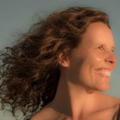
My contributions to teaching, research and engagement have enabled me to understand the diverse community we serve and the diverse interests of IAHR stakeholders. There are significant challenges facing the future of associations, such as IAHR, research organisations and the water sector. Leadership teams, such as the Ecohydraulics TC, need to bring like-minded people together, and enable initiatives in ways that are inclusive of the Ecohydraulics community. If elected as Vice-Chair, I would work to ensure such inclusivity, and drive engagement. I enjoy engaging more with our diverse community on Twitter (https://twitter.com/heide_friedrich), and have led organisation of conferences, publications and regular events as ways for facilitating engagement, both at global and national levels. I will bring those skills to the role.
My interest in ecohydraulics stems from the tensions I observe between traditional hydraulics and valuing our diverse water environments that society relies on. In New Zealand, and worldwide, our waterways and oceans are often treated as 'out of sight, out of mind'. We use our aquatic environments as an energy resource whenever it suits us, for industrial endeavours, recreation and mental recharge. We know more about how man-made objects, such as boats and bridge piers interact with water, than natural organisms. Not only in New Zealand, but worldwide, an increased understanding of aquatic systems, connectivity and associated health is important. In New Zealand it is even more important to protect our ‘clean green image’ to guarantee our future economic well-being. This image projected by New Zealand to the world is our key economic driver; it influences decisions on buying our products, investing on our shores (primary industries), and is the cornerstone of our tourism industry. COVID-19 has the potential to globally change our value system, and ecohydraulics could play an important part in this paradigm shift. We only can protect and value what we understand, therefore my interest in pursuing ecohydraulics research.
I lead the Water-worked Environments Research Group (https://water.auckland.ac.nz/). I am finishing my term as Deputy Head (Research) in the Department of Civil and Environmental Engineering at the University of Auckland, New Zealand and I am currently Chair of the New Zealand Rivers Group (https://riversgroup.org.nz/). I have close to 20 years’ experience, both in industry and academia, having worked and lived in Germany, Taiwan, Scotland, Australia and New Zealand. My main research focus is on studying the physical processes in natural aquatic environments, such as rivers, and how water interacts with and shapes its surroundings.
2. Qiuwen Chen
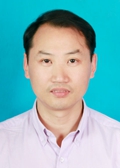
Prof. Q. Chen is the director of Center for Eco-Environmental Research, Nanjing Hydraulic Research Institute since 2013. Prof. Chen received the first degree from Hohai University in 1996, and MSc from IHE Delft in 2000, and PhD jointly from Delft University of Technology and UNESCO-IHE 2004. In 2004, he joined Research Center for Eco-Environmental Science, Chinese Academy of Sciences as a 100 Talent Program candidate, where he set up the research lab for Environmental Hydroinformatics and Ecohydraulics. In 2013, he moved to Nanjing Hydraulic Research Institute and set up a new department for ecohydraulics research. Dr. Chen is the pioneer who explored the integration of discrete paradigm for ecological module and continuous formulation for flow module to establish a novel angle in ecohydraulic modeling. Applications of the achievements in engineering practice of reservoir eco-operations have brought visible benefits to hydropower development and river ecosystem conservation, and to lake eutrophication adaptive management. Prof. Chen has published more than 160 papers in SCI journals, including Nature Reviews Earth & Environment, National Science Review, ES&T, Water Research, Journal of Hydrology, Ecohydrology, and 4 books as well as 3 book chapters. In 2017, Prof. Chen received the 20th Arthur Thomas Ippen Award from IAHR. He has also received one time the 2nd prize of national award, as well as 6 times the 1st prize of provincial or ministerial awards. Prof. Chen has also served as the associate editor of Ecological Informatics and Journal of Ecohydraulics.
IAHR Involvement
Member of IAHR (1999-)
Secretary general of the 10th Hydroinformatics Conference (2010)
Committee member of IAHR-China (2007-)
Associate editor of Journal of Ecohydraulics (2016-2018)
Personal statement
My involvement with IAHR can be dated back to 1999, when Dr. Christopher Gorge introduced me IAHR and brought me into the community in WL | Delft Hydraulics. I attended my first IAHR Congress in 2001 in Beijing, right after the 911. It was a memorable occasion, not only because of the insightful science and so many top scholars, but also because of the great efforts taken by the participants to attend the event in such hard situation. I gave my first conference presentation in my carrier, which was about turbulence effects on lake algal blooms. I also encouraged myself to ask questions to a presentation about fish passage, and the presenter Dr. Larry Webber later became my good friend from US. I attended my first Ecohydraulic conference in 2002 (ISE 2002), which was hold in Cape Town, South Africa. In this wonderful conference, I met famous persons such as Prof. Klaude Jorde and Prof. Jack King in this field, and opened my mind to know habitat modeling as well as ecological flows that still influences my group and me nowadays. Since then, my group members and I have attended almost every biannual International Symposium of Ecohydraulics. In 2016, I am honored to serve as an associate editor in the first round editorial board of Journal of Ecohydraulics.
IAHR, particularly Ecohydraulics division, has always had this unique family spirit that ties young members to more experienced mentors of the community. Food-Water-Energy nexus ranks a high priority on the policy agenda worldwide in the coming decade. The challenge of water resources use and eco-environmental conservation brings great opportunities to strike for groundbreaking ideas and cutting-edge technologies. In this sense, If I am elected as the vice chair, I commit to bring my energy, experience and national as well as international networks to promote the development of Ecohydraulics Division under the umbrella of IAHR.
Enhance international collaborations, particularly between developing and developed countries;
Increase public recognition of ecohydraulics to support policy-making;
Enhance the development of Journal of Ecohydraulics;
Organize the ISE 2024 in China, where demands of ecohydraulics research and application are booming.
Position - Leadership team members
1. Abul BM Baki
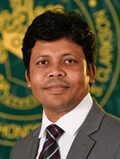
My name is Abul Baki and I am currently working as an assistant professor in the Department of Civil and Environmental Engineering at Clarkson University, Potsdam NY. From the very outset of my Ph.D. research in 2008, I have been working on ecohydraulics. And my research interests center on ecohydraulics for healthy water solutions. It would be my pleasure to serve as a Leadership Team (LT) member of the IAHR Ecohydraulics Technical Committee. I am fully committed to bringing my enthusiasm and multidisciplinary background as a water resources engineering scientist to promote the science, practice, and techniques in the arena of ecohydraulics. I believe that I can be active in supporting the Ecohydraulics TC activities with strategic vision and guidance. Thank you very much for your consideration.
2. Daniel (Zhiqun) Deng
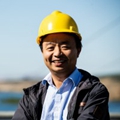
I am a Laboratory Fellow (highest researcher level) at the US Pacific Northwest National Laboratory and an adjunct professor at Virginia Tech. I have led many multi-disciplinary Ecohydraulics and Energy related projects funded by various agencies in the US including Department of Energy, Department of Defense, the US Agency for International Development, National Science Foundation, and Public Utilities Districts. I am the Director of the Bio-Acoustics & Flow Laboratory, an accredited multi-disciplinary R&D laboratory, addressing a broad range of engineering and ecological issues, with an emphasis on environmental monitoring and risk assessment for hydropower, wind, marine, and hydrokinetic energy systems. I was a developer for several widely used technologies including the juvenile salmon acoustic telemetry system and autonomous sensor fish. I was selected as one of the 78 outstanding young engineers in the U.S. to participate in the National Academy of Engineering Annual Symposium on Frontiers of Engineering in 2012. I was selected as one of the 30 outstanding scientist/engineers in the U.S. to participate in the first Brazil-US Frontiers of Science and Engineering Sciences in 2014. I have coauthored 120+ journal articles. I am also the U.S. representative for the International Energy Agency's Hydropower & Fish Annex.
I have been passionate about and active in Ecohydraulics research for 20 years. I was an invited speaker for the conference to officially launch the Journal of Ecohydraulics. If elected, I would be honored to serve the Ecohydraulics community and help expand the impact of the committee internationally as a LT member.
3. Daniele Tonina
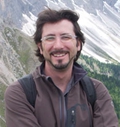
Since I started studying the interaction between surface water and groundwater within the hyporheic zone, I have been enchanted by the incredible interaction, and in some cases symbiosis, between physical and abiotic processes. For instance, I am fascinated by how organisms change their environments to increase their chances to grow and prosper. Salmonids modify the streambed topography and hydraulic properties to drive oxygen-rich surface water toward their eggs buried within the gravel. Similarly, benthic organisms adapt their spatial distribution onto streambeds such that they cluster around specific chemical signatures of pore waters upwelling into the stream. I have been a member of IAHR since 2001. I attended my first International Symposium of Ecohydraulics two years ago in Tokyo, where I discovered a dynamic community. I believe the IAHR Ecohydraulics Technical Committee is more than a committee. It is an incredible and vibrant community; whose members catalyze innovative research to advance our ability to understand natural systems and from this knowledge to manage water resources in a sustainable manner for our and future generations. All the recent community initiatives from the Ecohydraulics webpage, the “ecohydraulics channel” with interviews of members to a novel scientific journal are setting the stage for a successful future. I would be honored to be able to serve this amazing community as part of its Leadership Team. I will thrive to actively keep this momentum growing and maintaining our community as vibrant and dynamic as the subjects we study.
4. Davide Vanzo

Laboratory of Hydraulics, Hydrology and Glaciology, ETH Zürich, Switzerland
I am an Environmental Engineering by training, and my current work mostly focuses on the development and application of numerical models for eco-morphodynamic river processes. My involvement in the Ecohydraulics community started at the International Symposium on Ecohydraulics 2014 in Trondheim, and since 2016 I am a board member of the Early Career on Ecohydraulics Network (ECoENet).
I believe Ecohydraulics community can play an important role in facing the complex and new challenges of rivers, lakes and other water systems. I would be glad to actively contribute to the growth of our community as a member of the LT. In particular, I would like to focus my efforts on three main issues: firstly, the growth of a positive and continuous dialogue between the LT and the multiple instances of early careers on Ecohydraulics. This will be facilitated by my active role in ECoENet. Secondly, a deeper involvement of experts and early careers from countries currently under represented in the Ecohydraulics community, such as African and South American ones. This can be stimulated in different ways, for example with exploitation of virtual platforms for knowledge sharing and collaborative activities. Lastly, promoting the development, discussion and sharing of novel and good practices in rivers and lakes ecohydraulic modelling. Together with that, supporting the critical review and promotion of free or open tools for ecohydraulic modelling. This would be beneficial not only for practice and research purposes, but also for lectures and students in Ecohydraulics.
5. Jeffrey Andrew Tuhtan
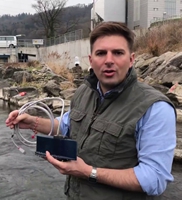
Ecohydraulicians are a passionate, knowledgeable and capable folk. We have learned the hard way how to inspire and inform the public about the value of a resilient and thriving aquatic environment. We have broad experience, we know how to get practical results with limited resources, and we are therefore an ideal “go-to” group for policy makers to guide them during the consistent and persistent challenges we will face. Despite this, the perceived value of ecohydraulics by the public and its relevance in the policy landscape lies somewhere between badminton and table tennis.
My motivation for joining the leadership team is simple: I want more of the public to become ecohydraulicians and help connect ecohydraulic professionals with policy makers. I have 10+ years of ecohydraulics experience working in European countries including Germany, Austria, Switzerland, Norway, Spain, Sweden, Portugal and Belgium. Since 2016, I have been privileged to run my own “Environmental Sensing and Intelligence” group as part of the TalTech Centre for Biorobotics in Estonia. My major contribution to the leadership team would be to promote, organize and disseminate Open Source ecohydraulics hardware and software. These devices and methods would be useful to teach the public about technology from “an ecohydraulics perspective” and provide flexible and scientifically sound tools for policy makers to interact with ecohydraulics experts. One fresh example is our development of a national e-flows system in Estonia, created by IT students working with the Environmental Ministry to help the environment by making the work of policy makers easier.
6. Mengzhen Xu
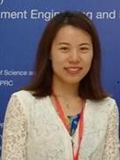
Personal Statement
My own scientific career and daily life has been benefit from the IAHR community, where I get to know my role models, like Profs. Silke Wieprecht, Jing Peng, and the other female professors like them. From them I see how the life could be, encouraging me to do my best to follow the way to the destination. Therefore, I wish to be the role model for the next generation, being an academic supervision career and soul mentor, encouraging the youth pursuing their dreams.
I wish to be a member of the leadership team of the Ecohydraulics Committee, and maybe in future to be the vice chair or chair after some years’ serving and contribution in the committee. If elected as the LT member of the IAHR-ecohydraulics Committee:
I will continuously contribute my passion in Ecohydraulics research and teaching, and to educate the youth and through them to educate more people to care about the environment and ecology in their work and daily life using the knowledge, helping river restoration and sustainable development.
I will always happy to be advisor for the Tsinghua YPN as well as the other YPN organizations, helping them to build up connections to the world, encouraging the youth to contribute themselves in building a world with clean water, blue sky, and ecological friendly environment.
I strongly wish to contribute my effort to any academic or service work for the Ecohydraulics committee, including reviewing papers for the journal Ecohydraulics and the conferences, organizing Ecohydraulic sessions in the IAHR world congresses, and maybe the coming international symposium of Ecohydraulics.
7. Rafael O. Tinoco
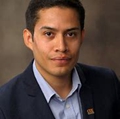
I'm an Assistant Professor of Civil and Environmental Engineering at the University of Illinois at Urbana-Champaign. I'm a Civil Engineering from the National University of Mexico (2005), with MS (2008) and PhD (2011) degrees from Cornell University. At the University of Illinois, we have built the Ecohydraulics and Ecomorphodynamics Laboratory, an international, diverse group of researchers working on ecohydraulic challenges across a broad range of scales, such as the feedbacks between benthic biota and transfer processes at the sediment-water and water-air interfaces, and the use of turbulent flow features as a control mechanism for endangered and invasive aquatic species, supported by the NSF-CAREER Program, the US Geological Survey, and the Illinois-Indiana Sea Grant Program. Since 2016, I’ve coordinated the Ecohydraulics session at the AGU-Fall Meeting, and I’m an active Board member of the River, Coastal, and Estuarine Morphodynamics Symposium since 2017.
With the Leadership Team, I’ll work across disciplines to identify the main challenges in Ecohydraulics research, building avenues to facilitate collaboration to addressing them. The current crisis highlighted the potential for leading international collaborations from our own homes, and we should continue to pursue this model, sharing educational and research materials with communities without the resources of state-of-the-art laboratories and top academic institutions. I’ll work with the LT to increase and diversify community involvement in online-friendly ISE events, and strengthen participation with our Journal of Ecohydraulics. Ecohydraulics is a science of change, and we are now at a crossroads with ample opportunities to adapt to our rapidly changing world.
8. Roser Casas-Mulet
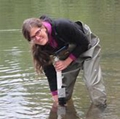
Aquatic Systems Biology Unit, Technical University of Munich, Germany
I met the Ecohydraulics family in 2004, when attending the International Symposium (ISE) Madrid as an engineering student. After working as a consultant and research officer in Spain and the UK, I got back in touch in 2010 at ISE Seoul as a PhD student. Since then, I have gradually become more involved with the Ecohydraulics community. I co-founded the Early Career on Ecohydraulics Network (ECoENet) in 2014, at ISE Trondheim. I was part of the ISE Organizing and Scientific Committees, and hosted the first ECoENet meeting at ISE Melbourne 2016. As part of an established EcoENet, we organised a workshop on interdisciplinarity at ISE Tokyo 2018, and we intend to continue this activity involving early careers on relevant conversations for the future of Ecohydraulics.
I believe Ecohydraulics plays a key role in both connecting the core disciplines that form it, and translating interdisciplinary research to applications that serve sustainable water resources management. This is what motivates me to join the Leadership Team. Having worked in a range of disciplinary departments internationally, I think I can contribute significantly towards developing meaningful connections between distant disciplines and career stages. I intend to drive the mentor-ECRs program conceived through ECoENet, promoting interactions and fruitful collaborations between like-minded researchers regardless of their career stage. I also aim at working towards an increased presence of under-represented disciplines such as ecological and social sciences, ensuring Ecohydraulics grows as a true interdisciplinary field of research.
9. Yujun Yi
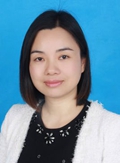
Prof. Yujun Yi works in the State Key Laboratory of Water Environment Simulation, Beijing Normal University (BNU), China. Her research interests lie in impacts of hydraulic engineering on environment and ecology, including mechanism, modelling and assessment. She has published over 110 peer-reviewed papers and 3 books, being cited over 1500 times. She received numerous rewards such as Humboldt Scholarship, Distinguished Young Scholar, Nature Science Prize of Higher Education, China Navigation Science and Technology Award, etc. She is included in the selection committees of the ICP Program, Alexander von Humboldt Foundation. Prof. Yi has hosted and participated in 32 national eco-hydraulic projects, and established extensive networks with researchers from over 10 countries. She also serves as committee member of international associations, associate editor and editorial member of international journals.
IAHR Involvement:
Member of IAHR (2009- )
IOC Executive Board member of IAHR China Chapter (2018- )
Member of Editorial Board: Journal of Ecohydraulics (2016- )
Organization Committee: ISWSO2018, iSymWater2019(co-chair)
Chair of Session: 35th IAHR World Congress, RCEM2011
Attended 11th, 12th International Symposium on Ecohydraulics; River Flow 2006; 35th, 36th, 37th IAHR World Congress.
Personal Statement
I have been involved into IAHR since 2006. Under stress of human activities, aquatic ecology has been seriously deteriorated. Eco-hydraulics becomes a new tool to understand this process by connecting hydraulics to ecosystems. I commit to bring my enthusiasm and professional experience to assist the development of IAHR Eco-hydraulics under the leadership chair.